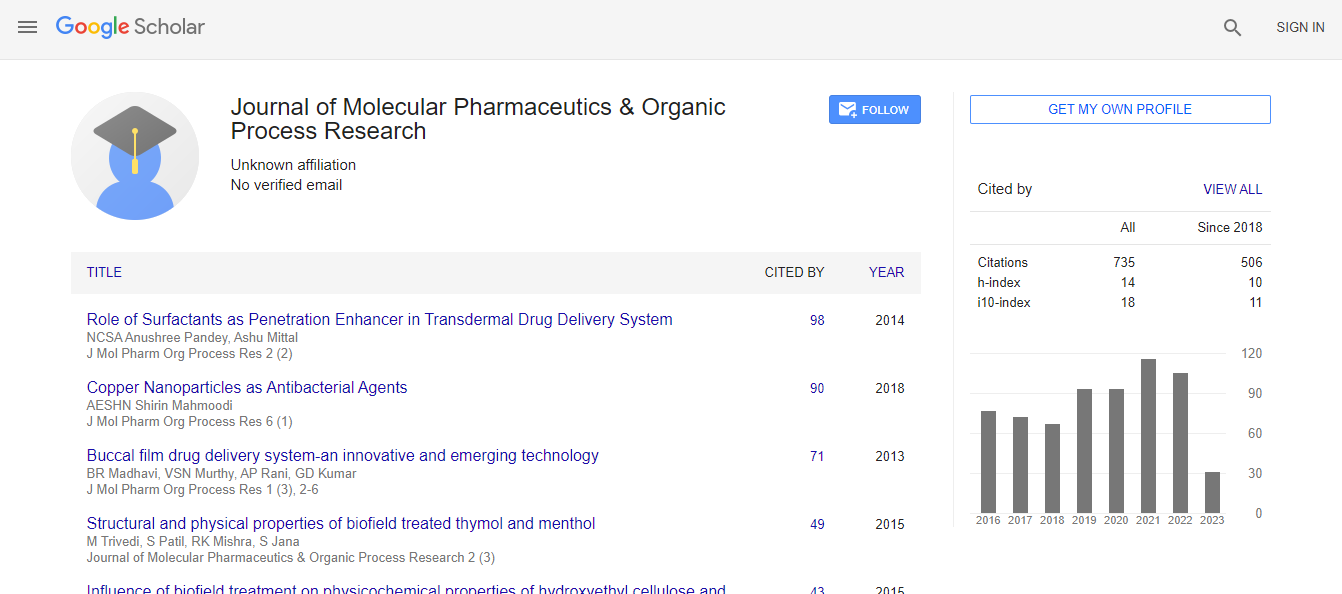Proteomics Profiling of Pancreatic Cancer and Pancreatitis for Biomarkers Discovery
Abstract
Pancreatic cancer is one of the leading causes
of death in the United States. It is considered the
4th most common cancer among both men and
women and is ranked as the 11th most common
cause of death globally. Pancreatic cancer
accounts for 7.2% (43,090) of cases of death in
the United States and 331000 deaths annually
worldwide [1]. This cancer is lethal because it
lacks early symptoms and results in latestage
detection and a high mortality rate. Several
studies have been undertaken to identify
biomarkers for early detection of pancreatic
cancer. Among these biomarkers is serum
carbohydrate antigen (CA19- 9), which has been
extensively studied and widely used for the
diagnosis of pancreatic cancer so far. It has a 90%
specificity to pancreatic cancer.
However, it is not expressed in Caucasians
lacking the Lewis blood group antigen (~5% of
the population) whereas an elevation can be
observed in chronic pancreatitis and obstructive
jaundice. Because of its limitations, CA19-19 is an
unreliable screening biomarker and is restricted
to the detection of tumor recurrence after
surgical resection. Carcinoembryonic antigen
(CEA) is another biomarker that has been used to
diagnose pancreatic cancer. Since the protein is
lacking in most pancreatic tumors and because
studies have shown that CA19-9 has a better
specificity and sensitivity compared to CEA,
scientists have discontinued using CEA to
diagnose pancreatic cancer. Nevertheless,
combining them has been common in panels.
According to researchers from the Mayo Clinic,
methylation markers distinguishing pancreatic
cancer from benign controls are detected in
pancreatic juice. Kisiel et alidentified a panel of
methylated biomarkers CD1D, KCNK12, CLEC11A,
NDRG4, IKZF1, PKRCB
and KRAS resulting in 75% sensitivity and 95%
specificity comparing pancreatic cancer to normal
pancreas and pancreatitis.
Ten frozen tissues each of pancreatic
adenocarcinoma, normal adjacent pancreatic, and
pancreatitis tissues were collected from patients
that underwent surgery as part of standard care of
their condition at Indiana University School of
Medicine (Indianapolis, IN). The specimens were
obtained and immediately snap frozen using liquid
nitrogen. Indiana University and Purdue University
Institutional Review Board Committee approved
the study and an informed consent was procured
from each patient.Laser capture microdissection
and protein extraction 2-Dimmensional gel
electrophoresis and image analysis MALDI–TOF–
TOF analysisImmunohistochemistry Statistical
analysis
The purpose of this study was to characterize and
compare the protein expression profiles of nonneoplastic
pancreas, pancreatitis, and pancreatic
adenocarcinoma tissues to determine alterations in
proteins expression that can be identified as
biomarkers for early detection and/ or therapeutic
intervention of pancreatic adenocarcinoma.
Pancreatic cancer, now the fourth leading cause
of cancer deaths in the United States for which the
5-year survival rates are 3% , is often dubbed the
silent killer because it seldom causes symptoms
until advanced. As a result, few pancreatic cancers
are operable at diagnosis and surgical excision
cures only 10-15% of patients. Furthermore,
pancreatic cancer is often resistant to conventional
radiotherapy or chemotherapy. Not surprisingly,
only 1-4% of patients with pancreatic
adenocarcinoma survive 5 years past diagnosis.
Recent clinical trials with gemcitabine
hydrochloride produced only modest clinical
benefits and marginally increased survival in patients with advanced pancreatic cancer. Much
has been learned about the genetics and
pathogenesis of pancreatic cancer from studies of
biopsy samples from cancer patients, cell lines,
and mouse models. However, successful
treatment requires more reliable biomarkers of
the disease.
In conclusion, the significant factor for the poor
prognosis of pancreatic cancer may be attributed
to its biological aggressiveness, the difficulty of
early diagnosis, and poor response to
conventional therapeutics. Additionally,
pancreatic masses are sometimes
indistinguishable from chronic pancreatitis or
benign pancreatic cysts when biopsy is obtained
from the lesion. For these reasons, we decided to
identify markers differentially expressed between
cancer vs. normal pancreas tissues. The
comparisons of protein expression profiles of
pancreatic cancer and pancreatitis and normal
pancreas using laser capture microdissection, 2-
dimensional electrophoresis, tandem mass
spectrometry (MS/MS) provided important
information about the molecular characteristics
and revealed some new specific or associated
biomarkers of pancreatic cancer including
pancreatic Lipase, annexin A1 and ALDH1A1. Our
study confirmed these proteins as biomarkers for
early detection of pancreatic cancer.
Understanding the role of these specific proteins
and their mechanistic action will give insights into
their involvement in pancreatic cancer.
Keywords: Pancreatic cancer; Proteomic;
Pancreatitis; 2D-gel; Biomarkers; Lipase

 Spanish
Spanish  Chinese
Chinese  Russian
Russian  German
German  French
French  Japanese
Japanese  Portuguese
Portuguese  Hindi
Hindi 
